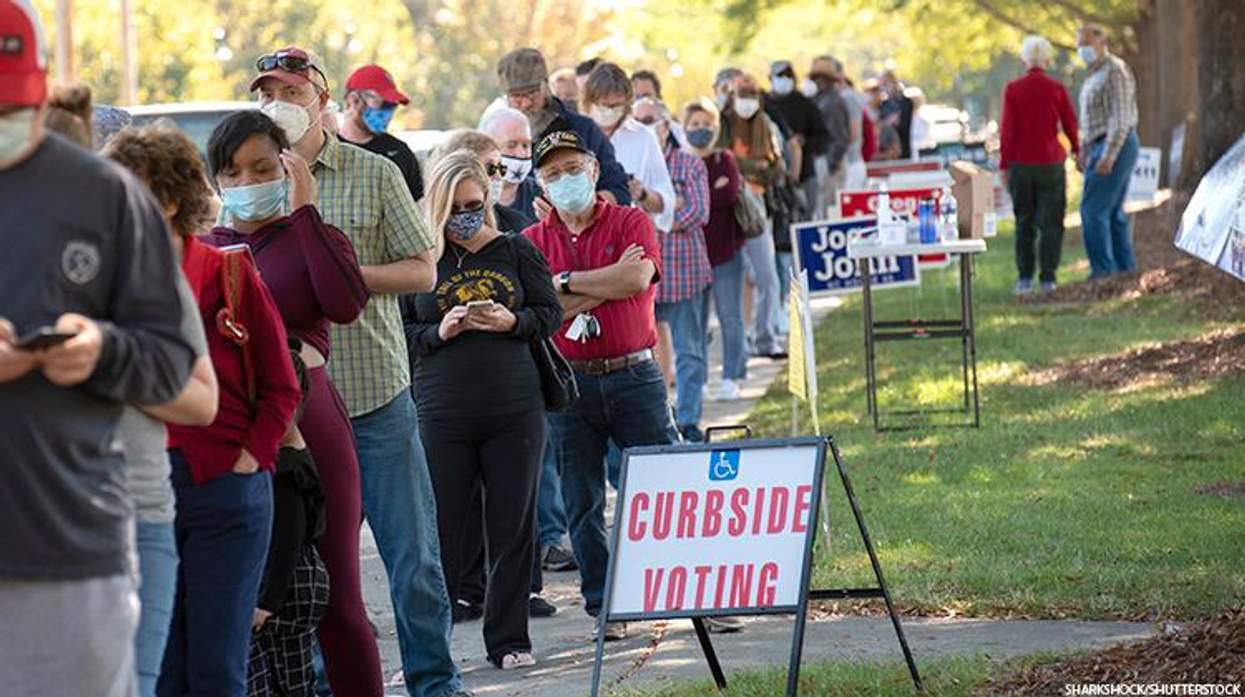With the proposed Respect for Marriage Act awaiting debate in the U.S. Senate, new polling data from the Human Rights Campaign indicates that over two-thirds of registered voters in swing states support marriage equality.
The data collected by the HRC, the largest LGBTQ+ civil rights organization in the country, shows that 64 percent of prospective voters in the November midterm election would support a law "protecting the national right to same-sex marriage."
The voters polled all reside in "battleground" states -- Arizona, Colorado, Florida, Georgia, Michigan, New Hampshire, Nevada, North Carolina, Ohio, Pennsylvania, and Wisconsin -- defined as states where the Republican and Democratic parties have near-equal levels of support.
Thousands or even hundreds of votes could affect the outcome of an election in swing states, yet support for marriage equality surpasses party lines with endorsement from two-thirds of voters. Support also transcends polling subgroups, with 58 percent of men in favor, 69 percent of women, and 55 percent of Christians.
"Marriage equality has been nothing but positive, both for the LGBTQ+ community and for our society as a whole -- and that's reflected in this polling," HRC Interim President Joni Madison said in a statement alongside the data's release.
"Same-sex marriage has been legal nationally since 2015, and in many states for years before that. The joy that has emanated from thousands of weddings of couples who were previously denied the right to marry has melted many hearts," she continued. "And the supposed harms that opponents of marriage equality predicted simply have not come to pass."
The recent Supreme Court decision to overturn Roe v. Wade, the case guaranteeing nationwide access to abortion, has many LGBTQ+ community members worried that the ruling ensuring marriage equality will also be revoked. Justice Clarence Thomas, one of the court's most conservative members, has said he would like to see that happen.
To protect the civil rights of queer individuals, the U.S. House of Representatives passed the Respect for Marriage Act in July a 267-157 vote with the support of 47 Republicans. The bill is currently awaiting deliberation in the Senate, where Democratic legislators have aimed to bring it to a vote before the November election. Thursday, however, it was announced that the vote will not take place until later.
Since the overturning of Roe, several states have pushed abortion bans. Recent data from The Wall Street Journal shows that 60 percent of registered voters support legal access to abortion, which has substantially swayed voters to support Democratic candidates.
"It is more important than ever to pass the Respect for Marriage Act," Madison concluded. "And reflect the voice of the 71 percent of Americans nationwide who support marriage equality."





































































Charlie Kirk DID say stoning gay people was the 'perfect law' — and these other heinous quotes